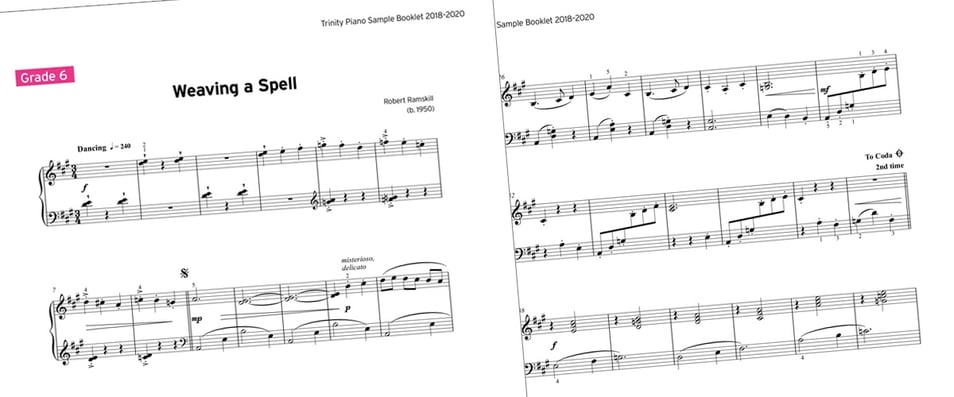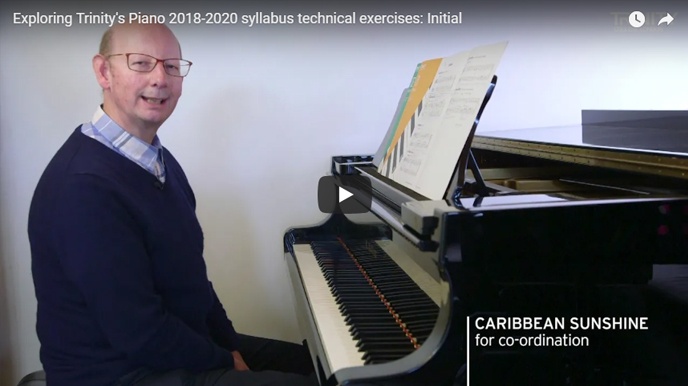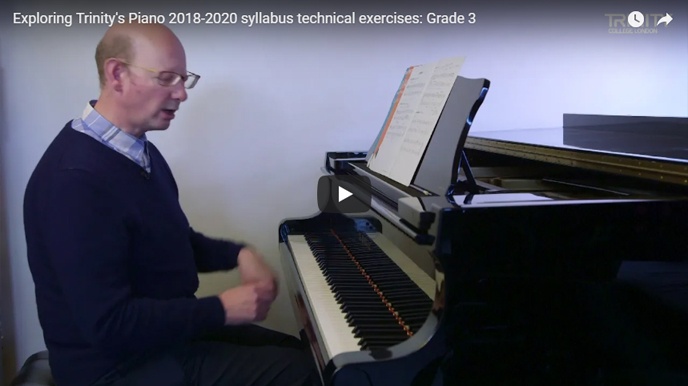Trinity’s piano technical work – developing the all-round musician
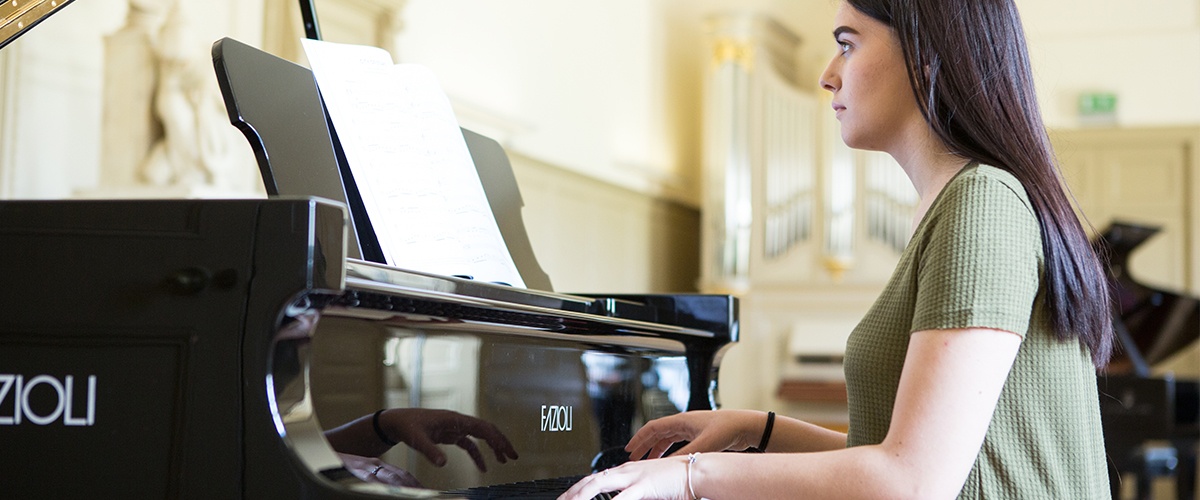
Trinity’s piano exams comprise three sections: pieces, supporting tests and technical work. The technical work section supports the development of technical skills by assessing performance in a range of areas, with candidates performing scales, arpeggios and exercises in their exam.
In this blog piece pianist, keyboard player, vocalist and Trinity examiner Nikki Franklin introduces you to Trinity’s piano technical work, explaining the benefits she sees in this section of the exam, and highlighting some of her favourite exercises and how she approaches them.
The technical work in the graded Trinity Piano syllabus is a rich resource for developing technique and musicianship throughout the grades; introducing the student to developmental, rewarding, balanced practice routines that support an informed, musical performance of graded pieces.
Since the early 19th Century approaches to piano pedagogy have mainly focused on two aspects of music-making – mechanism: fingering, scale passages, development of strength, independence, and ornaments, and holism: the combined elements of musicianship that bring the ‘flair’ or ‘art’ to the music, and subtleties in sound production, interpretation and performance style. The development and mastery of all elements of piano technique is the source of much debate amongst piano teachers and performers and there are many resources that support the piano repertoire: études, manuals, textbooks, as well as websites, blogs and other online resources.
As a teacher, I always use technical work to introduce the graded material. Through scales and arpeggios, I look in detail at the key centres, any fingering challenges and new techniques for the grade. For example, the addition of hands together similar motion scales at Grade 2, staccato and legato articulation from Grade 4, and so forth. I believe the detailed focus on specific key centres in the scales and arpeggios leads to high-quality learning of the given material. When I was a piano student, there seemed to be endless lists of scales and arpeggios to learn, so the focus was on quantity, rather than quality in my case! Relating the major and minor keys from the outset supports the incorporation of music theory into practical learning and ties in with the graded Theory of Music Workbooks . Further, as a composer, I encourage as many students as possible to take the option of composing one of their own exam pieces, so the scales and arpeggios create essential harmonic and melodic building blocks for this process.
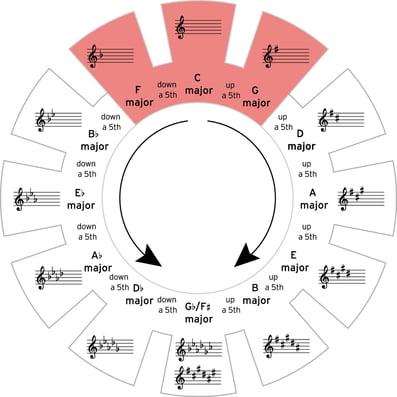
But scales and arpeggios do not stand alone in the technical work section of Trinity’s piano exams. The additional exercises are a feature where the Trinity Piano syllabus meets the needs of the modern pianist and piano teacher.
Having spent some years as a visiting peripatetic teacher, teaching in groups – where lessons are brief – technical work can take a back seat. These musical exercises mean that doesn’t have to be the case.
As you will see from the following examples, Trinity’s technical exercises are short, characterful mini-pieces specially written to focus on specific areas of technique that scales and arpeggios alone cannot cover. For the exam, students prepare three exercises which cover tone, balance and voicing; co-ordination; and finger and wrist strength and flexibility.
Technical exercises – in focus:
“They are full of colour – which is what playing the piano is all about” – Peter Wild, Trinity’s Lead Senior Music Examiner and primary consultant on the Piano syllabus
Grade 1
‘Pas de Deux’ from Piano Exam Pieces & Exercises 2018-2020 – Grade 1
This neat little exercise is a great introduction to tone, balance and voicing. The contrasts in articulation should be mastered hands separately at the outset – I would work on the melodic line first – RH bars 1-2 into LH bars 3-4, making sure to include the crescendo here. Bring hands together slowly to maintain control and balance.
This piece is great preparation for to co-ordination required in several of the repertoire pieces including Reinagle, ‘Minuet’ and Grill, ‘I’m Happy’.

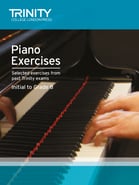 Grade 3
Grade 3
‘Keeping One’s Balance’ from Piano Exercises (Selected exercises from past Trinity exams)
I find this exercise particularly useful for developing expressive melodic lines in the LH. The phrase shapes and dynamics encourage balanced legato playing, supported by light RH crotchets. This piece also offers an opportunity to talk about mimicking orchestral sounds at the piano, with a cello-like LH and the quieter RH in the supporting style of viola and violin.
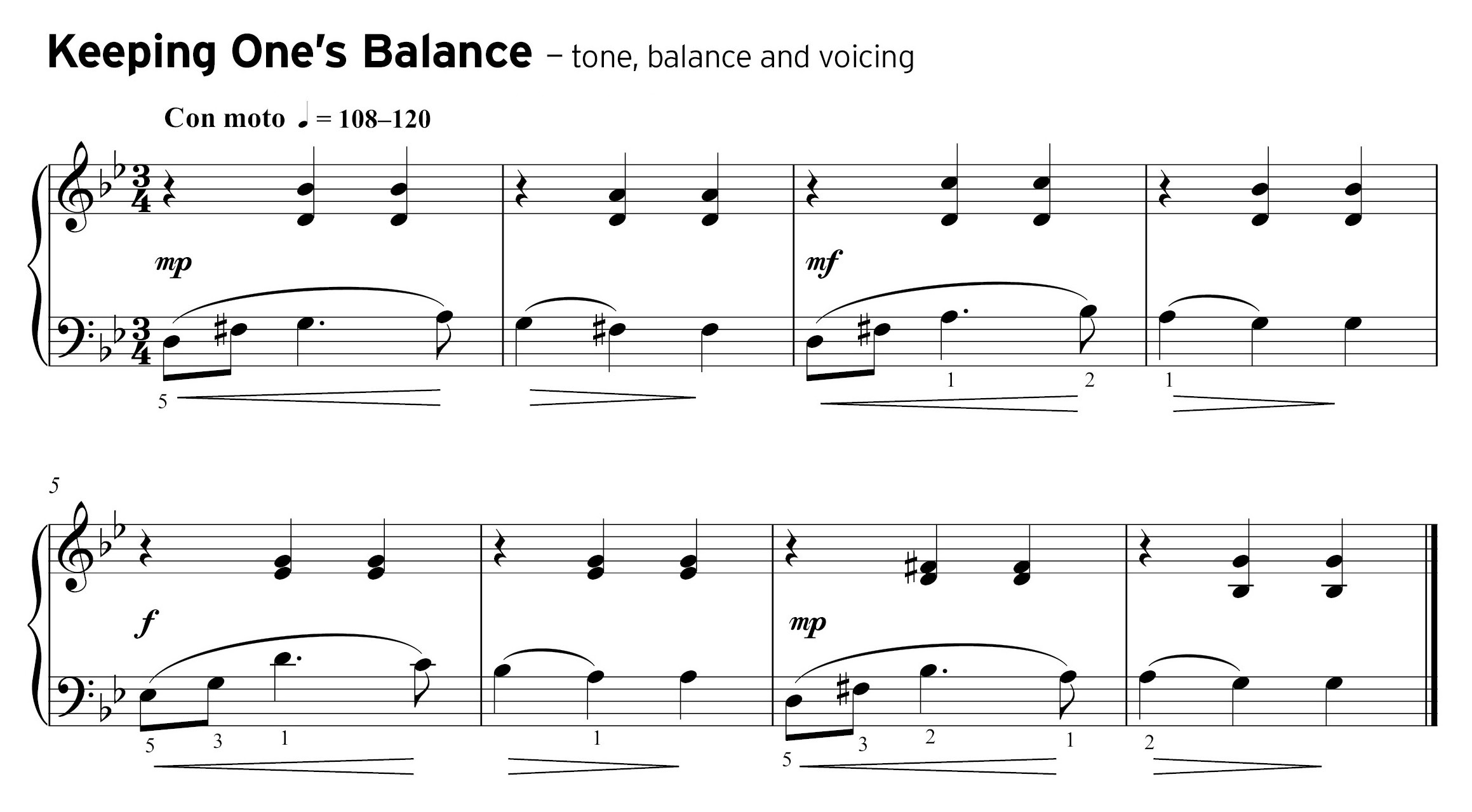
Grade 4
‘Moving in Closer’ from Piano Exercises (Selected exercises from past Trinity exams)
This exercise offers preparation in balance, evenness of tone and an opportunity to introduce rotary freedom. At Grade 4, there is an increased requirement for finger and wrist strength and flexibility across the repertoire. This technique will be essential to delivering a decisive risoluto in Gedike, ‘Little Piece No.17’, or maintaining the tone throughout the driving blues style of Petot ‘You Have To Shake It’.
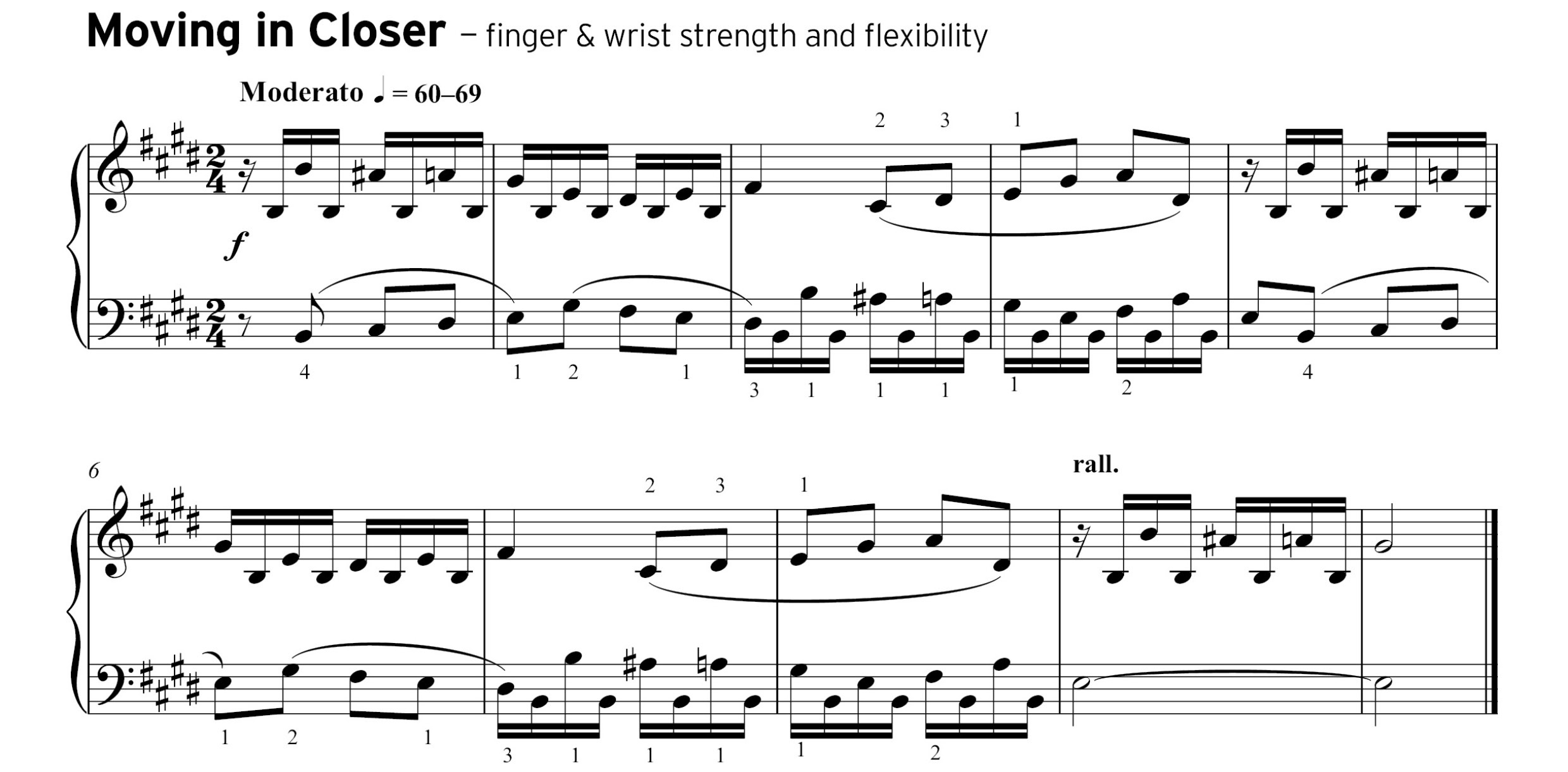
Grade 7
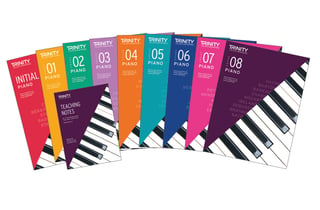
‘Sunrise’ from Piano Exam Pieces & Exercises 2018-2020 – Grade 7
A wealth of technical demands are covered here, with a broad dynamic range, crossing hands, detail in articulation, ornamentation and overall, a consideration of the sound of every note and gesture. This offers an opportunity to talk about sound production; shaping of the phrases and the onset and decay of the longer notes. These figures are present in the extended phrases of the Schytte, ‘Etude in A minor’, and the flowing, lyrical style of Peter-Horas, ‘Sarah’, both of which need a mature approach with finesse in sound production.
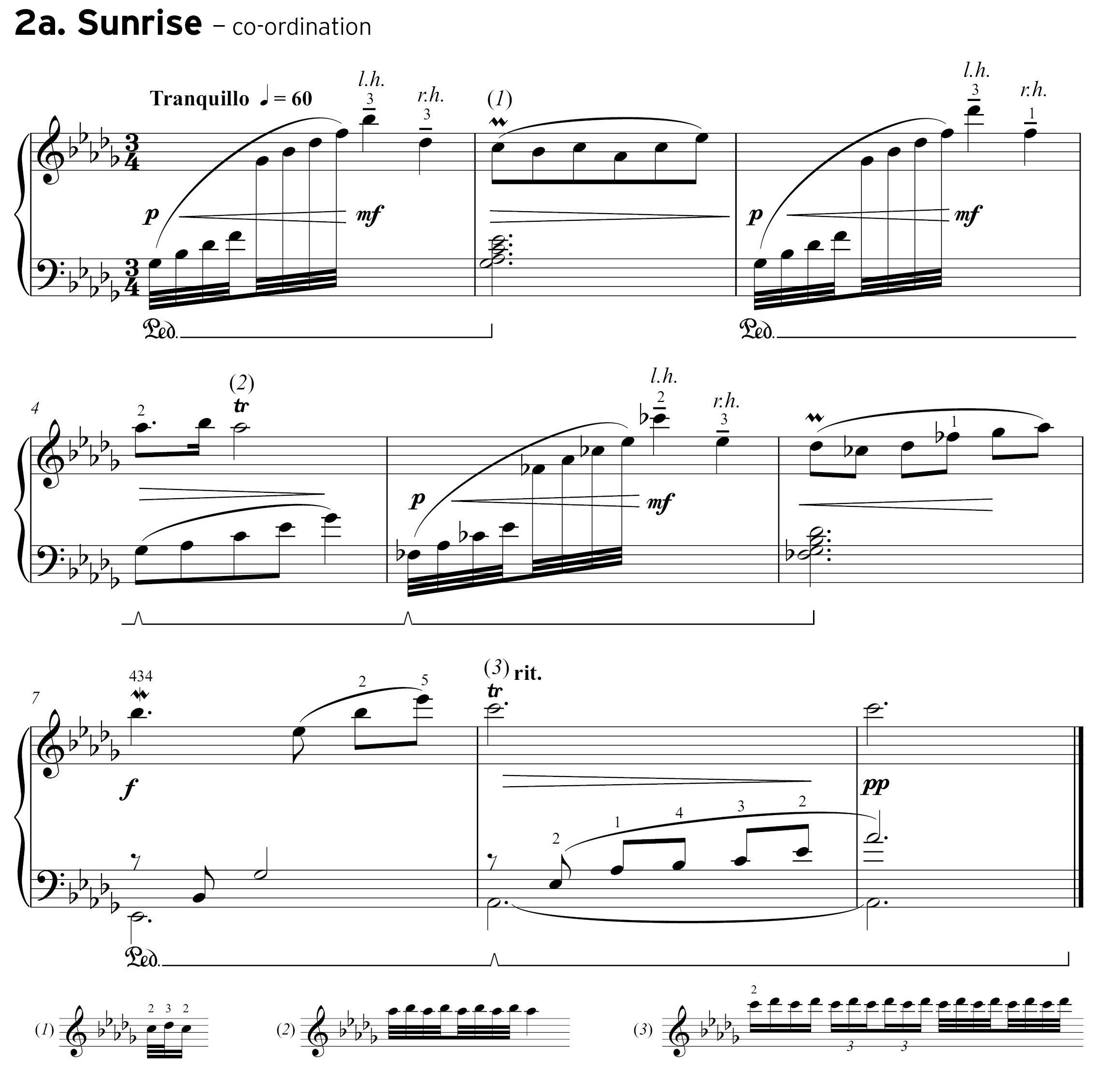
I have been encouraged by the increased number of bespoke and contemporary compositions from living composers in Trinity’s Piano syllabus; embracing a range of styles and challenges in rhythm, harmony and technique. The technical exercises can also be used an introduction to these sound-worlds. Try ‘Caribbean Sunshine’ for simple syncopation at Initial, ‘Jumping Beans’ for a 5/4 romp at Grade 5, and ‘Top Ten’, or ‘Under Control’ for irregular time signatures and metric modulation at Grade 7.
From a practical perspective, having spent some years working as a visiting peripatetic teacher with students learning in groups, or in a brief 15-20 minute weekly music lesson, there was little contact time for the inclusion of dedicated technique work within lessons. Incorporating the Technical Exercises as an exam requirement, gives the opportunity for development of both mechanism and holism in small, dedicated pieces.
Above all, we want to encourage our students to enjoy learning and progressing with music. Following the graded technical requirements offers a rounded music education to any student of any age, regardless of whether they choose to enter the exam room.
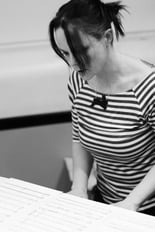 Nikki Franklin is a pianist, keyboard player and vocalist and has performed as a solo artist and in many bands throughout the UK and Europe. Currently, outside of her examining work for Trinity, she is working as a composer and arranger on her own projects and with commissions from musicians in Italy, France and Poland. She also works as a piano / keyboards and vocal tutor, with over twenty years private and peripatetic teaching experience. Nikki loves her teaching work, particularly one-to-one sessions with a wide age range of students, from beginner to Diploma standard. She is currently in the final stages of a Composition PhD at the University of York.
Nikki Franklin is a pianist, keyboard player and vocalist and has performed as a solo artist and in many bands throughout the UK and Europe. Currently, outside of her examining work for Trinity, she is working as a composer and arranger on her own projects and with commissions from musicians in Italy, France and Poland. She also works as a piano / keyboards and vocal tutor, with over twenty years private and peripatetic teaching experience. Nikki loves her teaching work, particularly one-to-one sessions with a wide age range of students, from beginner to Diploma standard. She is currently in the final stages of a Composition PhD at the University of York.
Nikki has performed in many UK venues, including Ronnie Scotts, the Royal Festival Hall and the Barbican. Her own compositions have been performed at the Royal Albert Hall, The Huddersfield Festival and at Aldeburgh, including works for Large Ensemble (The Spike Orchestra, Tzadik Records) and a large work for jazz orchestra and 2000 voice children’s choir.

